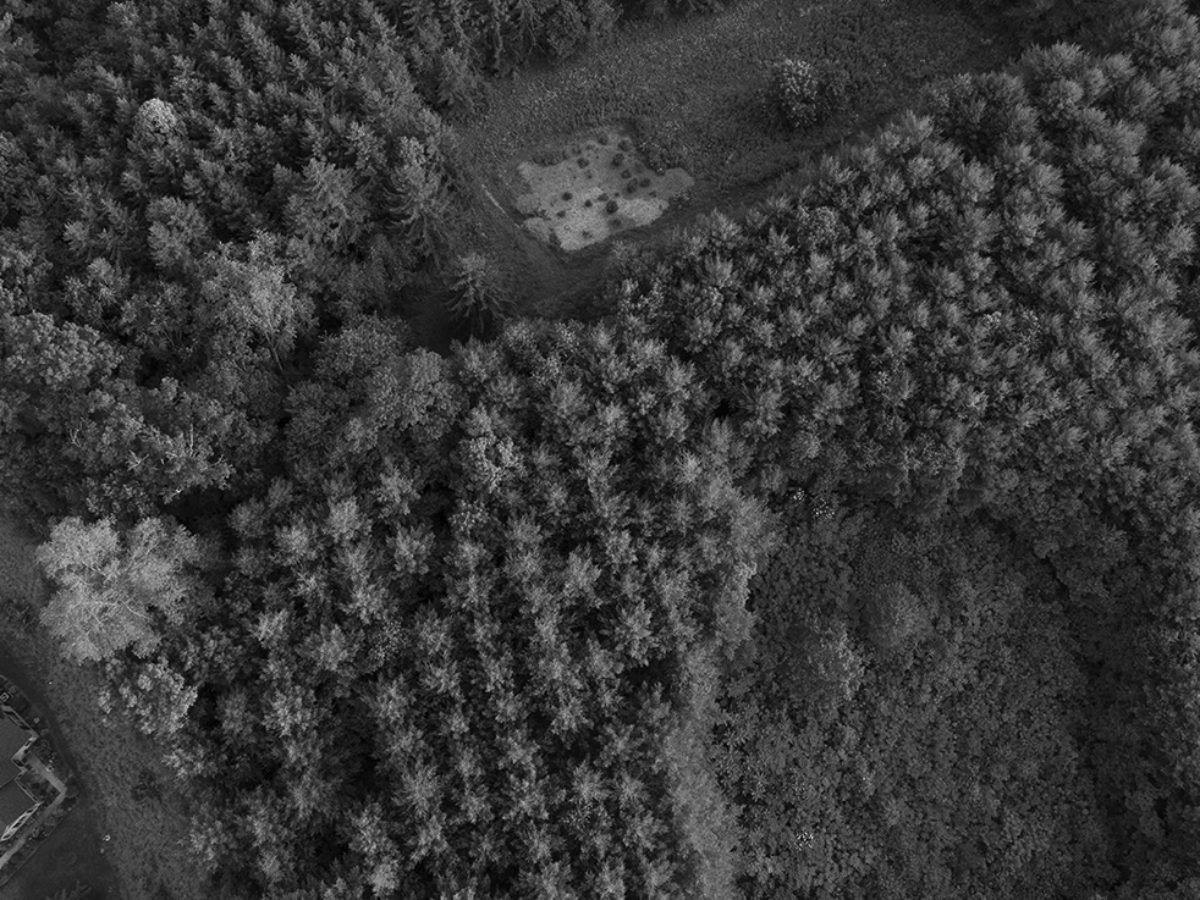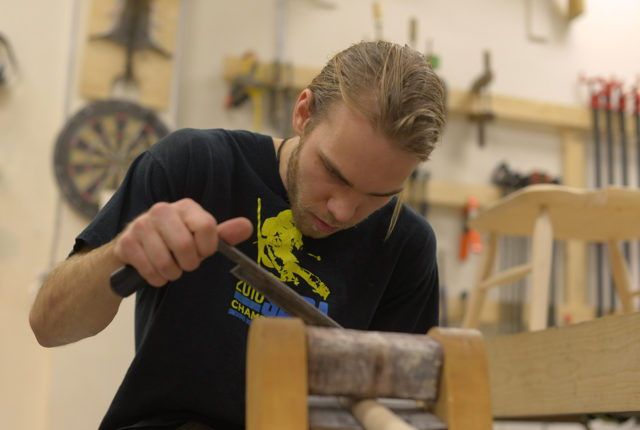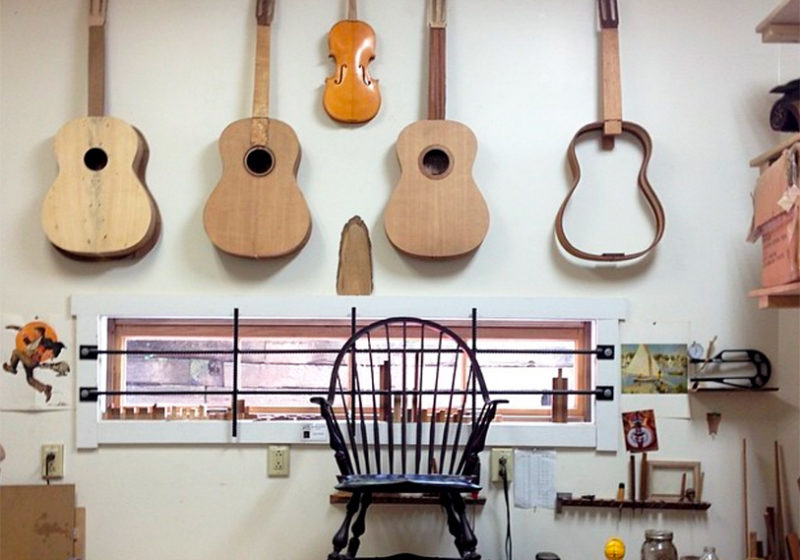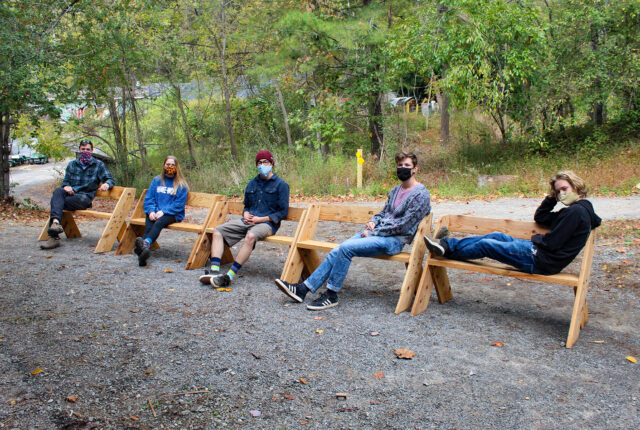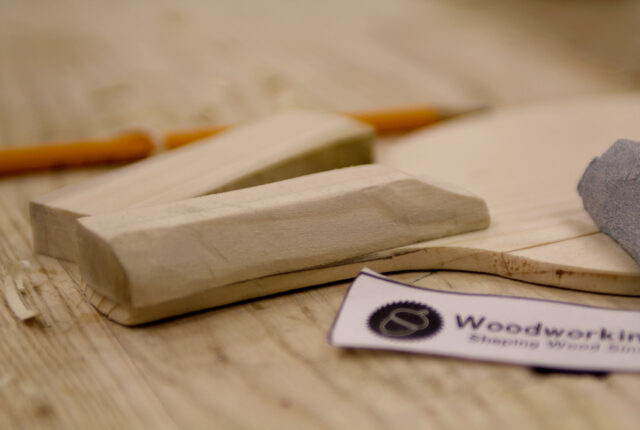Utilizing machine power and traditional hand tools to finely craft chairs, tables, boxes, lathe-turned bowls, pens, carving, marquetry, inlay, stools, and other items, students work closely with supervisor Ben Blackmar and local professionals to hone their trade.
